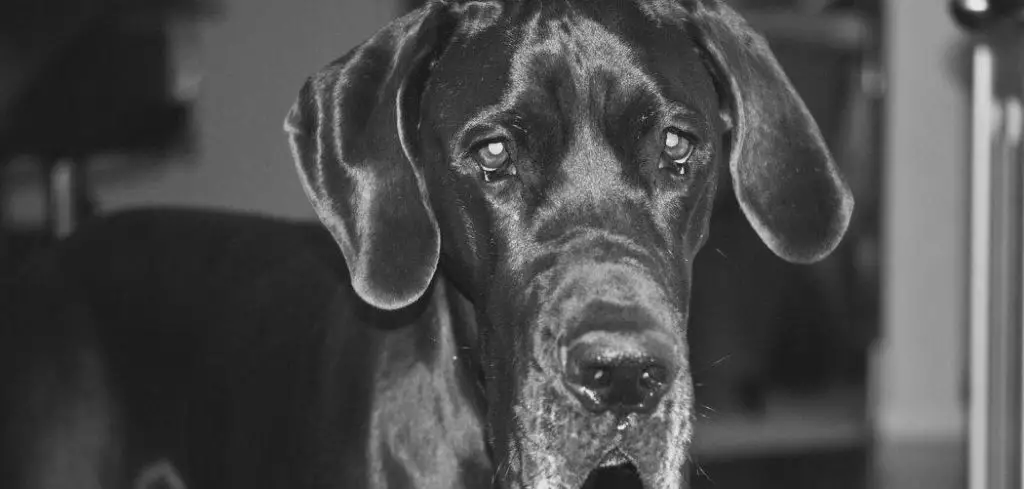It can be alarming to notice a dog licking its paws excessively at night, especially when the behavior seems sudden or relentless.
This repetitive action often signals discomfort or an underlying health condition that deserves attention.
We outline the common reasons why a dog may excessively lick its paws at night, what you can do at home, and when to seek veterinary help.
Dog Licking Paws Excessively at Night — Why It Happens
When a dog licks its paws excessively at night, it is often due to irritation, discomfort, or anxiety that becomes more noticeable during quiet nighttime hours. Allergies, infections, parasites, and even stress or boredom can play a role.
Nighttime tends to amplify the behavior because there are fewer distractions, making the licking more obvious to owners. In some cases, pain or an underlying medical condition may also drive the behavior.

Dog Licking Paws Excessively at Night: Common Causes
Allergies
Allergies are among the most common reasons for a dog licking paws excessively at night. Environmental triggers such as pollen, grass, or dust mites can cause itching that worsens when the dog settles down for the evening.
Food sensitivities may also contribute, and the persistent licking can lead to redness, irritation, or even sores.
Nighttime itching is often more noticeable because dogs are resting quietly, and there are no distractions from the discomfort.
Read more: Dog Licking Paws Excessively (What it could mean)
Skin Infections
Bacterial or fungal infections on the paws can lead to intense itching and licking, particularly at night when the dog is lying still.
These infections often develop as a secondary issue, sometimes following excessive licking due to allergies or moisture trapped between the toes.
Signs may include swelling, odor, or visible redness. Left untreated, infections can worsen and cause significant pain.
Parasites
Fleas, ticks, and mites can cause a dog to lick its paws excessively at night as they bite and irritate the skin.
Fleas are especially active at night, which can explain the timing of the behavior. Mites like those that cause mange can burrow into the skin, leading to relentless itching.
The paws are often targeted because parasites can hide between the toes, making them hard for the dog to ignore.
Anxiety or Stress
Some dogs lick their paws excessively at night due to stress, anxiety, or obsessive behavior.
Nighttime can be unsettling for dogs that struggle with separation anxiety or find it difficult to relax.
The repetitive licking may serve as a self-soothing mechanism, similar to nail-biting in humans. Over time, this can become a habitual behavior even if the initial trigger has resolved.
Pain or Injury
Hidden injuries such as small cuts, insect stings, or thorn punctures on the paw can cause a dog to lick excessively, especially when lying down at night and feeling the discomfort more acutely.
Arthritis or joint pain can also make dogs focus on their paws or limbs.
Because nighttime is when dogs rest most, the pain may become more noticeable to them, leading to constant licking.
Dry Skin or Environmental Irritation
Dry, cracked skin can result from weather changes, indoor heating, or exposure to road salt or chemicals.
This irritation can drive dogs to lick their paws excessively, particularly at night when there are fewer distractions.
Repeated licking may worsen the dryness and create a cycle of discomfort that persists nightly.
What to Do If Your Dog Is Licking Its Paws Excessively at Night
If a dog is licking its paws excessively at night, start by gently inspecting the paws for signs of cuts, swelling, or foreign objects.
Washing the paws with lukewarm water can help remove irritants like pollen or chemicals. Moisturizing paw balms designed for dogs may ease dryness.
Switching to hypoallergenic food or consulting your vet about potential allergens can help if food sensitivities are suspected.
Providing your dog with calming nighttime routines, enrichment toys, or soothing chews may reduce anxiety-driven licking.
Always monitor the behavior closely. If the licking persists for several nights or worsens, professional guidance is needed to identify and treat the underlying issue.
Read more: Dog Licking Paws Excessively After Grooming (Why it happens)
When to Call or Visit Your Vet
Excessive nighttime licking should not be ignored, especially if it leads to redness, swelling, or open sores. Persistent licking can create infections that worsen over time.
Contact a vet if your dog’s paws appear red, inflamed, or emit an odor. Sudden or severe paw licking at night accompanied by limping, whining, or loss of appetite should also prompt veterinary care.
If anxiety appears to be the trigger, a veterinarian can recommend behavioral support or calming medications to break the cycle.
In cases of suspected parasites, immediate treatment is essential to prevent further discomfort.
Read more: Dog Licking Paws Excessively and Limping (What it means)
Key Takeaway
Excessive paw licking at night can point to anything from allergies and infections to stress or hidden injuries. While occasional licking may be normal, sudden or persistent nighttime licking deserves attention.
Checking the paws at home and keeping them clean is a good first step, but lasting or worsening issues require veterinary guidance.
By identifying the cause and providing proper care, you can help your dog rest more comfortably and prevent further complications.
